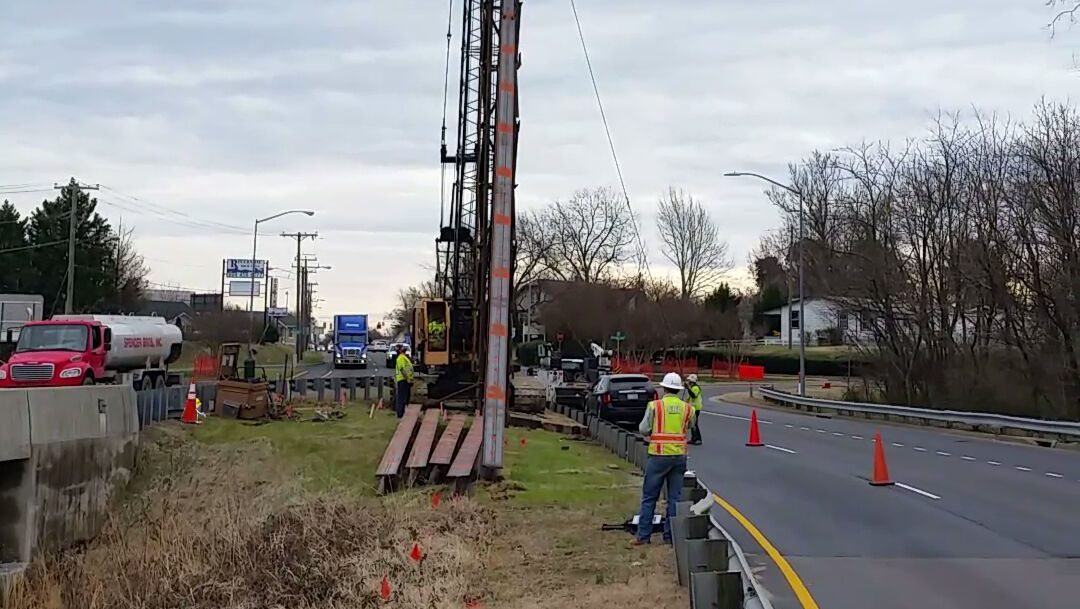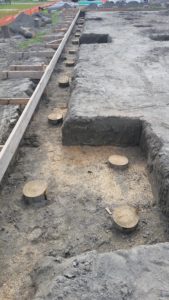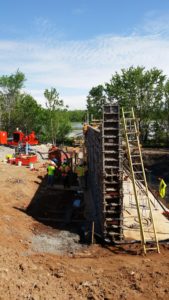
26 Jun 2019 What’s So Special About “Special Inspections”?
The International Building Code defines “Special Inspections” as “The inspection of construction requiring the expertise of an approved special inspector to ensure compliance with code and the approved construction documents.” In short, larger residential projects along with most commercial and industrial projects contain aspects of construction that are outside of the inspection scope for most local code compliance offices. This may be due to the need for specialized knowledge, training, or testing equipment required to complete the inspection per standards. The need for special inspections along with the scope is determined during the permitting process. The code official along with the design professional will determine if the project requires special inspections. This determination is followed by the preparation of a Statement of Special Inspections by the design or inspection professional. This outlines the exact items requiring special inspection or testing along with the necessary frequency and any special testing instructions. The project owner must hire a special inspection firm and these special inspections may commence upon the start of construction.
There are many types of special inspections related to structural components, life safety items, fire proofing, and seismic considerations. The most common special inspections items in Virginia are: site/soil testing, footing/foundation and concrete, masonry, and structural steel.
- Site/Soil Testing: During preparation of the building pad and other structural areas of the site, the placement of controlled fill is typically required to reach design elevations. The special inspector is responsible for determining the suitability of materials to be utilized for pad preparation. Common materials consist of clean fill soils, quarry screenings, aggregates, or recycled concrete aggregates. Once compliance of the material has been determined, the special inspections firm completes testing of the site subgrade and compaction of the fill soils. This is typically accomplished by nuclear density gauge testing of the fill materials during placement. The fill must comply with project specifications for density and moisture content. Upon satisfactory completion of all fill materials, the building pad undergoes a proofroll inspection for final acceptance. The proofroll requires loading the pad with large rubber tired equipment (15,000+ pounds axial load) to reveal areas of deflection, pumping, or rutting. After final acceptance, excavation of footing and preparation of the slab on grade may begin.

- Footing/Foundation/Slab and Concrete: During footing excavation the special inspector will verify that the base of excavations meet requirements for soil bearing and condition. The inspector will also verify that the excavation depth, dimensions of the footings, and rebar placement meet the approved plans and specifications. During concrete placement the inspector will complete field testing of the concrete at the job site. Tests such as slump, temperature, and entrained air content are common to ensure compliance with the approved concrete mix design. Compressive strength test specimens are also cast onsite during the placement of the concrete. These test specimens are cured at the testing laboratory and then tested at various ages to determine the compressive strength of the concrete. Compliance with compressive strength design requirements is critical to the structural design and functionality of the building.
 Masonry: Many buildings may contain cinder block or other structural masonry components as part of their construction method. The special inspector will verify that the correct type and size of masonry units are being utilized. Mortar prisms/cubes are cast and tested many times to ensure the mortar utilized for masonry block connections are compliant with design strengths. For large walls or walls in an unbalanced fill condition, the masonry units may be required to contain steel reinforcement and grout fill. The inspector will verify the reinforcement materials and placement meet plans. Grout placement is observed to ensure grouting operations are conducted properly and fully. Grout samples are typically cast onsite for compressive strength testing.
Masonry: Many buildings may contain cinder block or other structural masonry components as part of their construction method. The special inspector will verify that the correct type and size of masonry units are being utilized. Mortar prisms/cubes are cast and tested many times to ensure the mortar utilized for masonry block connections are compliant with design strengths. For large walls or walls in an unbalanced fill condition, the masonry units may be required to contain steel reinforcement and grout fill. The inspector will verify the reinforcement materials and placement meet plans. Grout placement is observed to ensure grouting operations are conducted properly and fully. Grout samples are typically cast onsite for compressive strength testing.
- Structural Steel: Steel is a common construction method in commercial and industrial buildings. The steel may be connected via bolted connections or field welded connections. The special inspector will verify the steel materials to be utilized meet compliance along with verification that the fabrication shop meets industry requirements. During steel erection, the inspector will verify the proper placement of all structural items such as columns, beams, anchor bolts, purlins, lateral bracing, and steel cable braces. Bolted connections are examined for compliance with plan requirements for “snug tight” standards or specific torque values. If field welding is required, Certified Welding Inspectors observe the condition, location, extent, and size of welds. In many cases additional field tests such as x-ray examination are required on critical or full penetration welds.
Upon completion of all special inspections, reports are submitted to the local code official along with a final certification of completion by the special inspections engineer. The testing and inspection reports become a critical component of final inspection and issuance of the Certificate of Occupancy.
Special inspections are an integral function in the overall construction and success of a large building project. The inspector plays a key role for the project owner/developer and is responsible to ensure compliance with code, plans, and specifications. The inspections firm is retained by the project owner and serves as the owner’s agent to ensure materials, methods, and contractor activities meet expectations and codes. It is important for the owner to hire a qualified inspections firm to oversee this process. The firm should contain licensed engineers or architects with experience in the special inspections process and interpretation of building codes. The field inspectors should be certified by applicable agencies for the specific inspection task they are fulfilling. Common certification agencies are, the American Concrete Institute (ACI), American Welding Society (AWS), and the International Code Council (ICC). The testing laboratory should be an accredited lab to ensure that standards are upheld for calibration, equipment, testing methods, and procedures. Laboratory accreditation is provided by the U.S. Army Corps of Engineers, and the American Association of State Highway Transportation Officials (AASHTO).
KBJW’s professional inspection staff has over 40 years of combined experience with a support staff of field inspectors certified by ACI, VDOT, and the ICC. Our field inspectors are backed up by our internal testing laboratory certified by the U.S. Army Corps of Engineers and AASHTO. If you have questions about special inspections and testing for any large residential, commercial, or industrial building project please contact Brent Johnson at 804-541-1436 or via email.

